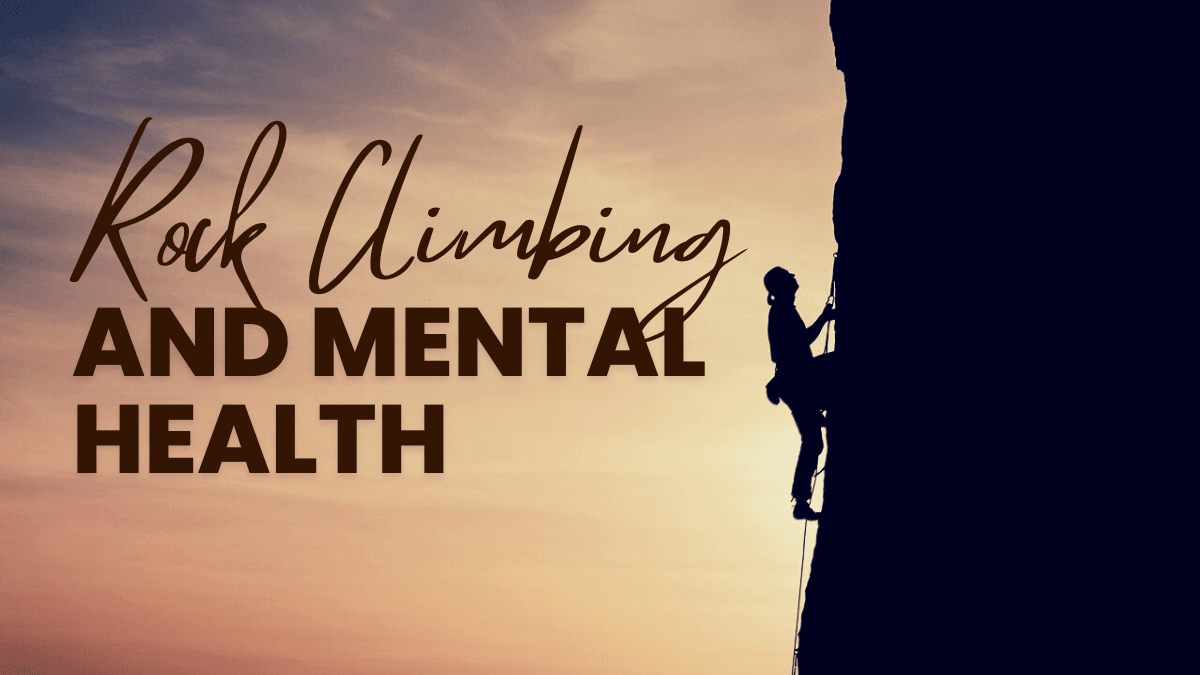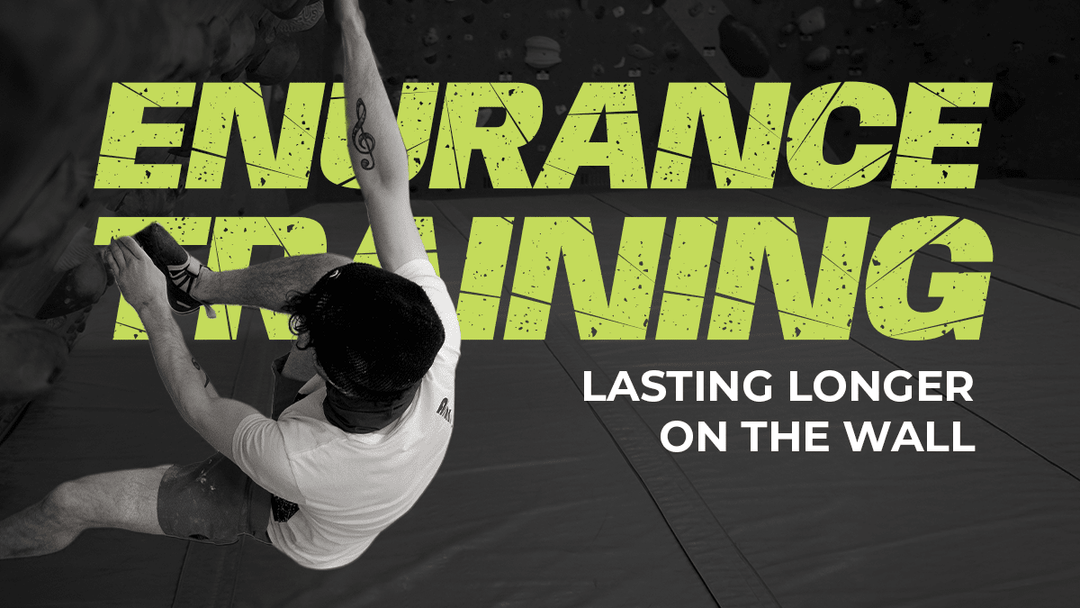Rock Climbing and Mental Health

Not only is climbing a sick flex of a hobby, but it offers incredible physical and mental health benefits. Whether you're considering picking up climbing as an outlet or a new tool for the ole noggin, or you've been climbing for ages and looking to incorporate more of a mental focus into your training routine, this article is for you. As we outline some practices aimed at centering brain health during your time on the wall, we'll discuss a few of the mental benefits climbing offers.
The day after a challenging climb, we've all felt proof of just how physically demanding climbing can be. If you've been climbing for even a couple of weeks, you've probably felt the speed at which your muscles rise to meet the challenges you keep making them face. But muscles aren't the only thing you're working out as you climb– routes require constant focus, problem-solving, and a great deal of trust in both your brain and body.
Brain Breaks

Regardless of what's in your head off the wall, as soon as you lift up from the ground, your brain wants to focus on one thing: keeping you from plummeting back down! That is where observation and problem-solving skills kick in. Just like any kind of puzzle, the brain receives quite a workout as it scans the many path options of a route and tries to determine the best possible path forward. As you move along a route, a hold may not feel like you thought it would or offer as good of grip, adding on a little more resistance to the mental bench press as your brain quickly reassesses and attempts again. And it does this all while working to hold you on the wall!
As your body asks for your full attention, try your best to hand it over. There are many approaches to this challenge of concentration. You can try to memorize a route before attempting a climb and seeing how many moves you can remember as you go, or just move your focus from one hold to the next until you finish a route. For folks dealing with mental health conditions that cause busy, loud, or simply hard to sit with brains, the practice of separating from the noise and forcing your mind to deal with the situation at hand offers not only temporary time outside of your head but also helps stretch your familiarity with and ability to maintain that space when needed.
Even if your goal is simply to stop worrying about what your boss's response will be to your latest project or that embarrassing moment you had in front of a new friend earlier in the day, these exercises can be utilized to help calm the noise and offer some positive, empowering time with yourself.
Body Breaks

When it comes to being present in your body, climbing offers a unique opportunity for grounding work that helps regulate your brain and body during your climb. It enables you to improve and build lasting techniques.
For this exercise, start with an easier route. The goal is to get comfy with the movement before applying it throughout your more challenging climbs. As you move each of your limbs to a new hold or position, try to move a bit more slowly and intentionally on the route than you might typically do. Be conscious of where you are placing your body, how it feels to make contact with a hand or foothold, how it feels for your muscles to contract and relax as you move, and what sensations are present. Does your body feel tight? Power packed? Perhaps even shaky or tired? Whatever sensation you encounter, take note, then move into the next. As with a typical grounding exercise, this practice helps bring you into the present. Grounding exercises are beneficial for folks who struggle with symptoms of anxiety as well as trauma-related conditions such as PTSD.
This grounding work, combined with the physical sensation of strength that climbing forces one's body to recognize, offers a highly empowering experience for many climbers. Whether you are sending every route or focusing on getting one hold higher than last time, remaining present and intentional in your climbing will help improve your time in the gym and with yourself as a climber.
Building Trust
Climbing is utilized in all sorts of rehabilitation and team-building environments, emphasizing the benefits of improved trust between individuals. Challenging your trust can be as simple as trying a climb with a belay partner for the first time. When it comes to top-roping and other sorts of rope-required climbing, the practice of trusting another person to quite literally hold your life in their hands is powerful. Outside of the trust placed in a belay partner, trusting in your own knot-tying abilities, your judgment that allowed you to try such a feat in the first place, and your ability to successfully tackle new skills, no matter how intimidating, cultivates a resilient relationship with yourself, your brain, and body.
When it comes to trusting in your own body and skill, here's a helpful activity that's easy to engage in and helpful not just for mental health but for climbing ability. Whether you're bouldering or top-roping if you notice yourself replacing a hand or foot several times before trusting your position (otherwise known as pumping), challenge yourself to make as intentional placements as possible. As you progress in this skill, try allowing yourself one opportunity for placement per move. As you do this, you are likely to become more aware of what sorts of positions offer the best stability or grip (ding ding ding! Climbing skill alert!), but you'll also start trusting your body and judgment more and more. Just as with most physically demanding activities, your body is often more capable of making a move or landing a hold than our brains let us think!
As you consider the hindrances or advantages of your mental state in your climbing, consider what practices might help you better approach your next session. Whether you try some of these techniques or simply take better note of your mentality the next time you're on the wall, remember; brain and body go hand in hand! Just as you likely experienced some degree of mental health benefits as you progressed in your climbing practice, your body is likely to thank you for spending a little extra time focused on your brain.




